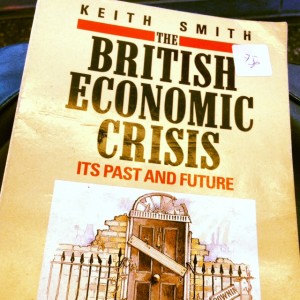There’s an interesting new research summary on VoxEU by Caroline van Rijckeghem and Beatrice Weder di Mauro, Learning from past crises: Into the safety zone, which looks at the history of sovereign defaults. The conclusion is that political system and default are related – parliamentary democracies don’t and dictatorships do. However, the causality between politics and economics is not simple, and growth is essential to prevent political polarisation. So what at first glance appeared an optimistic conclusion turns out to be a rather pessimistic one.
“Growing discontent as the result of austerity may be the most important factor yet in influencing the probability of default. …[O]ur research shows that in democracies budget deficits smaller than 4.4% are sufficient historically to avoid default on external sovereign debt at times when international liquidity is plentiful. The latter condition is fulfilled in today’s world. But the former is not. In fact many developed economies have current deficits well above 4.4%. In particular the UK, US, and Japan have deficits above 8% and among periphery countries in the Eurozone Greece and Ireland and Spain are above 7%. Based on this criterion, these countries are in a zone of vulnerability.”
The authors go on to say the Eurozone is a special case, historically, so one cannot apply this evidence from the past mechanically. It might be possible to bring down deficits gradually, without adding to austerity measures. They write:
“[T]he solution suggested by the German Council of Economic Experts, the European Debt Redemption Pact, has the advantage that it represents a transparent and credible long-term commitment device. It aims at reducing debt slowly to 60% over 20 years, thereby protecting growth and requires collateral, earmarking of revenues and European control. In turn, the joint and several guarantee for all participants for interim debts over 60%, signals a long-term political and economic commitment from the stronger Eurozone countries to maintaining the integrity of the Eurozone. Together, this would constitute a grand bargain.”
This column put me in mind of Ben Friedman’s marvellous 2005 book, [amazon_link id=”1400095719″ target=”_blank” ]The Moral Consequences of Economic Growth[/amazon_link], in which he makes a powerful – and it now seems clear, prescient – case for growth on exactly this kind of political economy ground. He writes:
“The value of a rising standard of living lies not just in the concrete improvements it brings to how individuals live but in how it shapes the social, political and ultimately moral character of a people.”
[amazon_image id=”1400095719″ link=”true” target=”_blank” size=”medium” ]The Moral Consequences of Economic Growth[/amazon_image]


